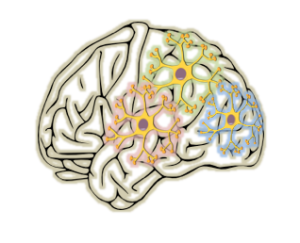New Expert Certification in Structured Literacy Therapy
Professional Education for Language-Literacy Interventionists
Therapy for dyslexia has come a long way from the days of Samuel Orton and Anna Gillingham. In the decades since the initial formulation of the Orton-Gillingham (O-G) approach, research has reached a consensus about the most effective way to teach reading and writing to students with language-processing differences. The initial O-G approach was focused primarily on letter-sound associations (phonics) but in a highly systematic, sequential, and cumulative (aka structured) manner and with the understanding of the primary importance of speech sound processing.
The modern application of structured literacy intervention, informed by over a decade of neuroscience and brain imaging research, focuses on three aspects of word processing: speech sounds (phonology), spelling patterns (orthography), and meaning elements (morphology). While there is mounting scientific support for this “triple word form” model of the way the human brain has adapted its language centers for learning to read and write, there are very few professionals who can truly call themselves experts in the application of this approach to intervention with struggling readers and writers. In order to close this gap, language experts need access to professional education courses that share the latest methodologies and approaches to intervention.
Become a Certified Expert in Structured Literacy Therapy
Lexercise is pleased to announce that we are now offering a certification in Structured Literacy Therapy. This certification will demonstrate your knowledge of language structure and your understanding of research-backed intervention principles to clients, colleagues, and employers. Professionals who pass the Lexercise Qualification Exam with a score of 80% or higher will receive a certification symbol for their website, as well as a certificate that can be printed and displayed in an office.
Or, if you are feeling a little rusty in the area of language structure and would like to brush up on this, as well as improve your understanding of research-backed interventions, we would welcome you to take our two-course sequence:
- Course 1: The Structure of Written English - Course 2: Structured Literacy Intervention
If you pass the final exam in Course 2 with a score of at least 80% you will receive the Lexercise certification in structured literacy therapy, and we will provide you with course completion certificates, the certification symbol for your website, as well as the printable certificate in Structured Literacy Therapy.
Practitioners of structured literacy intervention and their students have a lot to look forward to! The National Institutes of Health BRAIN project (or Brain Research through Advancing Innovative Neurotechnologies) is just getting underway. As science continues to reveal details of the brain’s circuitry for language and literacy and correlate it with behavioral data, we will be better and better able to align instruction to research and customize it for diverse learners. Join us! Start working toward your Certification in Structured Literacy Therapy here!
The Journey to This Point
When Chad and I started Lexercise 6 years ago, we assumed that the professionals who considered themselves experts in structured literacy intervention (aka O-G) shared a common vocabulary and understanding about the basic building blocks of language structure. With this assumption in mind we launched the Lexercise online games to allow these professionals to provide their clients with intensive, linguistically structured practice.
In the year that followed we learned that our assumption was naive. Professionals who had achieved certification in various structured literacy “programs” differed dramatically in how they defined even the most basic units of language structure (e.g., phoneme, grapheme, syllable, vowel, consonant, blend, digraph, morpheme), as well as in their ability to identify these essential units and in their understanding of how to teach these concepts. Using the Lexercise game software requires a professional who can confidently parse most words into their sub-lexical elements and who can use scientific inquiry methods to investigate word structure. We realized that there were not enough professionals who were prepared to do this, and all our efforts were on the verge of failure.

For Lexercise to survive we realized that we would need to establish consistency by employing our own therapists and requiring them to demonstrate their mastery of the terminology and the structured literacy procedures supported by an overwhelming body of research. And that is just what we did.
We recruited highly motivated clinical educators with a track record of commitment to the science of literacy to work with us. At the same time, we created a rigorous set of structured literacy courses with qualification exams designed to focus on the knowledge and skills that research has identified as important for language interventionists. We were guided in this task by the International Dyslexia Association’s Knowledge and Practice Standards for Teachers of Reading. After a period of assessment and improvement, we began offering these courses as professional development opportunities. We also offered the Lexercise Qualification Exam to professionals as a way of demonstrating and documenting their knowledge and expertise. As such this certification demonstrates what you actually know, not just what you have attended.
5 Responses to New Expert Certification in Structured Literacy Therapy
-
-
I hope this includes those who passed exam previously.
-
I am in hopes of registering for the second course very soon! I just sent you an email!! Thank you, S!!
Leave a comment
Improve Your Child’s Reading
Learn more about Lexercise today.
15-minute consultation
Sandie Barrie Blackley, MA/CCC
MA/CCC - Cofounder and CKO
Sandie is a speech-language pathologist with more than 30 years of experience in the private practice sector. She is Visiting Assistant Professor of Communication Sciences & Disorders at University of North Carolina Greensboro, and founder/owner of the Language & Learning Clinic, PLLC, a private practice in Elkin, NC, and Greensboro, NC, specializing in communication disorders, including disorders of reading and written language.


Do you have to be a speech therapist to take this course?